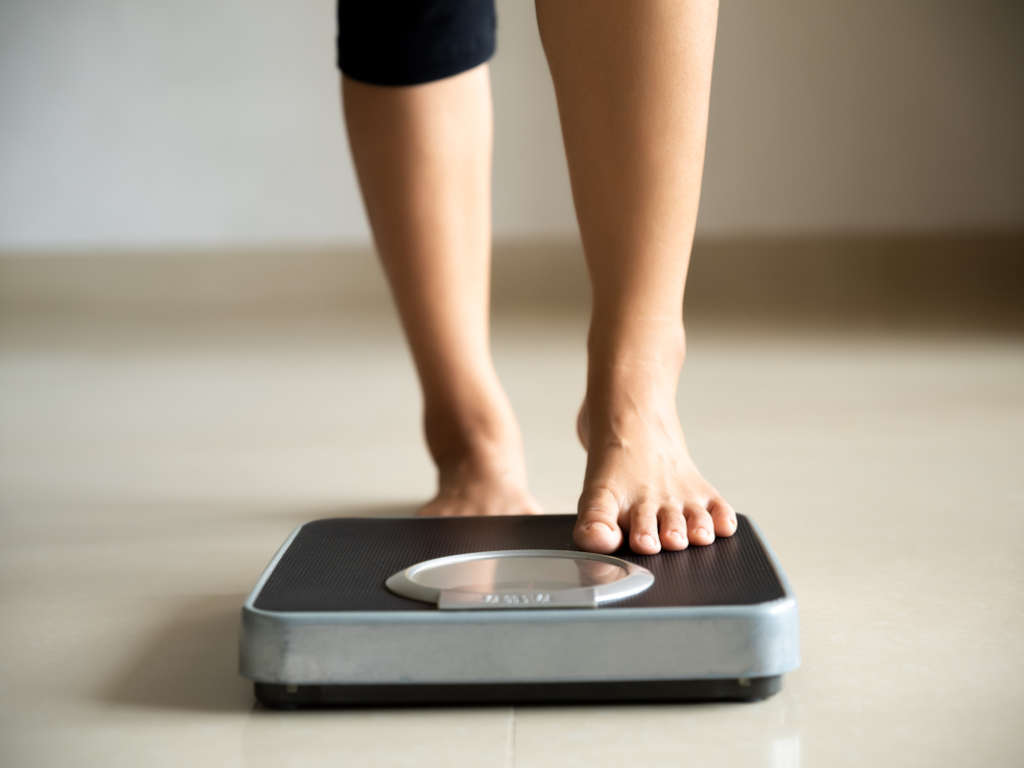
Social media can be a great outlet for interacting with friends or family around the world. As easy as one click on a phone or laptop, an individual has access to millions of pictures, videos, and whatever other content someone seeks.
What social media users do not realize is the negative impact that social media usage can cause, including low self-esteem and disordered behaviors.
A lot of us like to post selfies, our weight loss journeys, or other glamorous pictures of our physical appearance on social media. People who have body image concerns will have a difficult time seeing all these “perfect” social media images and begin to have a negative body image of themselves.
People do not understand the impact social media can cause on young women suffering from eating disorders, making it even more difficult to battle the negative feelings around appearance.
What is an eating disorder?

Eating disorders are both a medical condition and a mental health condition. The American Psychiatric Association (APA) defines eating disorders as “illnesses in which the people experience severe disturbances in their eating behaviors and related thoughts and emotions.”
Often eating disorders occur with other mental health disorders like anxiety disorder, obsessive-compulsive disorder (OCD), panic disorder, and substance use disorders. The most common types of eating disorders are anorexia, bulimia and binge eating disorder.
Types of eating disorders
Anorexia Nervosa
Anorexia is characterized by a distorted body image/appearance and disordered eating with an unwarranted fear of being overweight. Symptoms include trying to maintain a below-normal body weight through too much exercise or more often starvation.
Bulimia Nervosa
Bulimia is a potentially life-threatening eating disorder. People with this condition binge eat large amounts of food. They then take steps to avoid weight gain. Most commonly, this means vomiting (or other purging behaviors), but it can also mean excessive fasting or exercising.
Binge Eating Disorder
Binge eating disorder is a serious eating disorder in which you frequently consume unusually large amounts of food and feel unable to stop eating.
If you have a binge eating disorder, you may be embarrassed about eating too much and tell yourself that you must stop. Your compulsion takes over to the point that you cannot resist the urges and continue to binge eat. If you have binge eating disorder, a treatment program can help.
The struggle with social media and eating disorders
Social media plays a significant role in people’s lives, spending hours looking at social media platforms and social media content daily. Young men and women often do not realize the negative effects it can have on their mental health and self-esteem.
Research shows that the parts of the brain that govern good decision-making skills and reasoning are not fully formed until your early 20s. It makes sense that teens and young adults are easily convinced that what they see on social media represents reality.
Take into consideration young women or men who already have a negative self-image, want to lose weight and may also be looking for eating disorder treatment. If they search out help on social media, they may be able to find help, or they may seek opinions from social media users.
Social media is often the root of how someone compares their physical and mental health to what they perceive in others.
Exposure on social media between real images or altered images can make it a challenge not to compare oneself to others.
How can your social media platform affect another’s body image?
When people post on their social media pages it may influence how someone views themself. Often, these are edited images that promote unrealistic standards and the “perfect body” that is just not possible.
For example, if someone looks at a picture of their friend or a celebrity or some other social figure that posted a picture of themselves on social media, the person alters the image to make it appear they have the perfect body shape and size, when in reality, it is social media tools allow the shape, skin tone, backgrounds…to be altered. This causes an unrealistic expectation for adolescent girls, young women and men and may result in body shaming, eating concerns or disordered eating behaviors.
Peer Pressure
Cyberbullying contributes to 65% of people with eating disorders, and they say that bullying contributed to it, according to the National Eating Disorders Association (NEDA).
Cultural Pressure
Image-driven social media platforms like Facebook, YouTube, Instagram, Spapchat, and Tik Tok can subject the followers to a virtually endless stream of photos, videos, and messaging that demonstrate supposed (but unrealistic) ideals of body shape, diet, beauty, weight, and weight loss.
Emotional Health
Emotional and mental health problems like personality tendencies like perfectionism, major depression or impulsive behavior, low self-esteem or self-doubt can be underlying causes of food-related disorders.
Jon Jasper, eating disorder therapist at Turning Point of Tampa discusses the influence of social media platforms on self-esteem and body dissatisfaction while on Fox 13
Jon Jasper, the eating disorder therapist at Turning Point of Tampa discusses the negative impacts that social media use plays on young people’s body satisfaction, often resulting in low self-esteem. While being interviewed on Fox 13 he talks about the lack of awareness on social media regarding people struggling with an eating disorder or body image problem.
“There are groups that give you tips on how to restrict or skip meals and they are targeted towards teenagers, specifically young girls which is perpetuating the distorted image and reinforcing the broken eyes that an eating disordered person already has” says Jon.
He goes on to talk about how social media and athletics are huge factors that play a role in someone developing an eating disorder. This is a serious problem that needs to be addressed so that people will begin to look at their bodies in a more positive way.
“80% of 10-year-olds are concerned that they are fat, which is pretty alarming when you hear that number.” Jon adds. Young children look to their peers for acceptance and often compare themselves to people they see in the media, leading to a negative self-image or appearance.
Some scary statistics about social media and effects on young women and men

- Instagram is strongly favored by teens, with 72% of teens using the app daily. This is a significant increase from 52% in 2015
- 69% of children have their own smartphones by age 12, up from 41% in 2015
- According to 54% of teens, parents would be much more worried about their social media use if they knew what happens on it
- The percentage of teenagers who watch online videos daily increased from 34% in 2015 to 69% in 2019, while for tweens it rose from 24% to 56%
- 43% of teenagers and young people feel bad about themselves if a social media post does not get enough comments or likes and the same percentage have deleted a social media post because of it
- More than 70% of teens visit at least one social media platform each day
Getting help for an eating disorder at Turning Point of Tampa
Turning Point of Tampa has a holistic approach to the treatment of eating disorders. We believe that there are several important aspects of any individual that must be considered during treatment.
At Turning Point of Tampa it is possible to see positive changes and a significant impact to your mental health, self-esteem, and overall body image with our treatment services.
The primary focus of treating eating disorders in our program is to offer nutritious, low sugar, high fiber foods that also identify and eliminate each client’s individual food triggers and encourages healthy eating. At Turning Point of Tampa, we provide a safe environment where meals are planned, prepared by the client, and weighed and measured.
If you or someone you know is suffering from an eating disorder and is looking for help or support, please contact the staff at Turning Point of Tampa for more information on our programs.



